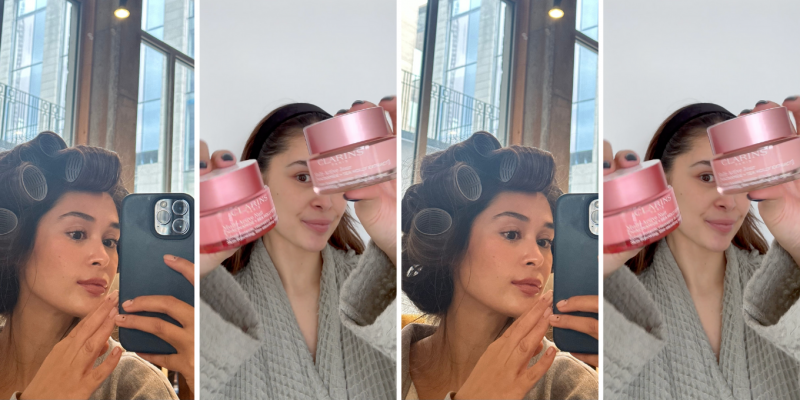Beauty
Earth angel
No longer just grassroots, the organic skin care movement has grown into a big business.
by : Dana Tye- Sep 1st, 2005

If organic foodies were the first to dub their bodies “temples,” it wasn’t long before clever marketers noticed that the temple facade needed a make-over. “The organic skin care movement-started in the ’60s-was launched by high-minded hippies armed with rudimentary scientific knowledge and tight budgets,” says Jean Eng, owner of Toronto’s Pure Simple (www.pureandsimple.ca), which specializes in products without petroleum, chemical fragrances, colours or preservatives. Fast-forward 40 years and beauty giant Coty has jumped into the burgeoning wellness arena with its Healing Garden Organics Wild Honey collection, to be followed by a Fig and Lavender collection in the spring. The lines contain 70 percent certified organic ingredients.
Purity pioneers Alternative-health types, environmentalists and skin allergy sufferers were the first to comb health food stores for chemical-free products from pioneering American, European and Australian companies such as Dr.Hauschka, Aubrey, Rachel Perry, BWC (Beauty Without Cruelty) and Jurlique. Eco-conscious companies like The Body Shop and Aveda then tapped into the au naturel obsession in the ’70s on a much larger scale. These days, top-ranking natural products distinguish themselves from their imitators by price, purity of ingredients and quality of formulation, says Eng. “Clients are becoming more and more sophisticated and knowledgeable. They want manufacturers to back up their claims with ingredients and results.” Certified organic products are often harder to obtain than conventional beauty ingredients and, until recently, only online suppliers, spas and select health food emporiums seemed willing to break into the less profitable, niche skincare market that is often driven solely by word of mouth.
Organic vs. natural Wild, naturally harvested ingredients are harder to locate and to keep fresh, so few beauty products are truly organic, says Marty Newcomen, Calgary-based founder of Newco
(www.organictreatreeoil.com). Newco’s all-natural skin creams and shampoos contain only plant-based derivatives with no added preservatives, chemicals or synthetics. If shoppers want the health benefits that come from superior natural products, they should research a company’s policies and practices thoroughly and expect to pay the same they would for a luxury skin cream, Newcomen advises.
Who buys? Jeff Binder, co-founder of online organic-beauty supplier Saffron Rouge (www.saffronrouge.com), based in Guelph, Ont., says his clients are primarily committed to better health and beauty regimens, and second, have a desire to protect the planet. The three-year-old company only sells products with certified organic, plant-based derivatives, no genetically modified organisms, no petrochemicals, synthetic colours or fragrances, no animal testing and a commitment to ecologically safe harvesting practices. “True beauty people are often quality people,” says Binder. “And they ultimately benefit the environment by choosing organic products.”
Photo courtesy of F.Best
Newsletter
Join our mailing list for the latest and biggest in fashion trends, beauty, culture and celebrity.
Read Next

Fashion
Zendaya Welcomes Spring in a Retro Floral and Tulle Dress
Another day, another preppy tennis-core look.
by : Briannah Rivera- Apr 23rd, 2024

Culture
A Joe Alwyn Source Explains Why He Didn’t Want to Talk About Dating Taylor Swift
Following the release of The Tortured Poets Department, new insight about the British actor’s decision emerges.
by : Alyssa Bailey- Apr 23rd, 2024

Beauty
Tested and Approved: Your New Hydrating Skincare BFF
This new product has all of your skin’s thirst-quenching needs covered.
by : ELLE Canada- Apr 17th, 2024




